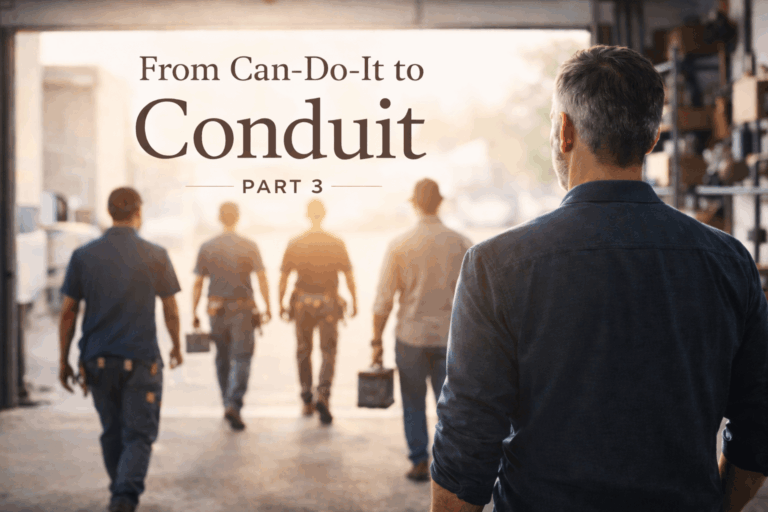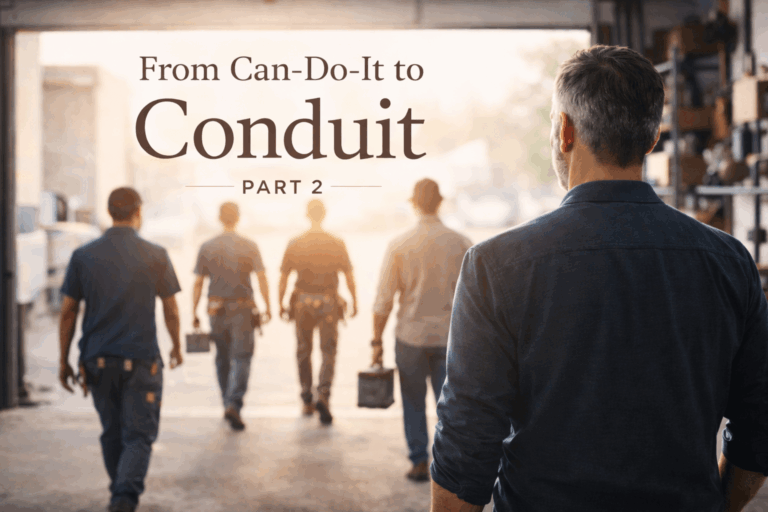For years I’ve been telling business owners that the financial performance of their company follows their behavior, and their behavior follows their thinking. If you question this statement, then let’s reverse the order of the words: behavior follows financial performance.
We can apply the same principle to strong sales or strong cash flow. We become weak or satisfied or complacent. Let’s take the pandemic as an example.
Having insufficient savings to withstand a downturn in business is a mindset more than it is a factor of outside conditions, regardless of whether those conditions include the economy, the markets, or a pandemic. We convince ourselves that we’ll never need much of a cushion or we never establish the discipline to build that cushion.
In some cases, the pandemic also revealed what can happen when we have an unhealthy dependence on one customer. During flush times (keep in mind that for most businesses, times were pretty flush pre-COVID) it was easy to dismiss the risk of an overdependence because the money was so effortless. Or maybe because we had gotten too comfortable or too casual about marketing to find additional customers. In the cleaning industry, we saw this with companies that had become reliant on one or two large contracts. In the restoration industry, we saw it with companies that had an excessive reliance on program work—especially if it was from any one program. Things seemed to be fine, right up until that one customer experienced financial difficulties of their own, or decided to “go another direction,” or until the contractor got cut off by the program. Or until COVID hit and some business owners found themselves without enough revenue to support their company or their lifestyle.
Anyone who has heard me talk about business numbers has heard me state that when one customer represents more than 20% of a company’s overall revenue, they are a threat to that company. This doesn’t mean they’re a bad customer or that you should stop doing business with them. Quite the contrary! You should pamper them … and then get busy finding more of the same type of customer so not one of them represents greater than 20% of sales.
Some owners had gotten soft with tracking the profitability of their jobs or even of their company. Others would rationalize their unprofitability, thinking they had other customers to offset the poor performance. They would write it off as a “marketing expense” or convince themselves they would make up for the loss in volume. When the economic seas got rough, these owners quickly felt the bite of customers they had relied on too heavily and many discovered the impact that doing so was having on their business.
During the height of the pandemic, our advice to clients remained the same as what we have always given—run your business with discipline all the time, in good times and in bad. This way, when tough times arrive (and they will always arrive at some point), you’re prepared. But this requires developing the business discipline and mental toughness to avoid financial distractions; the type of discipline that will lead to the right decisions, that lead to the right actions, that produce the desired financial performance.



